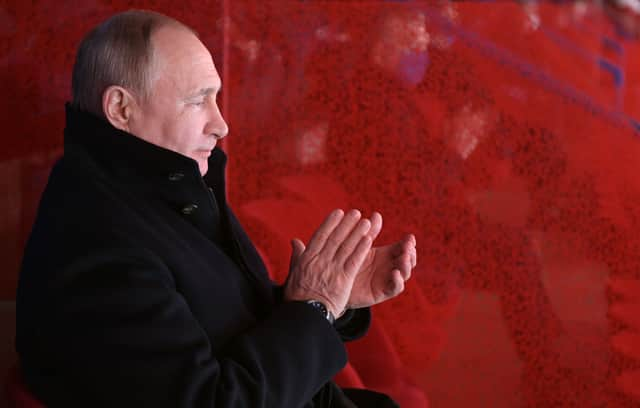Pariah state meaning: definition explained, list of pariah state nations - and is Vladimir Putin’s Russia one?
This article contains affiliate links. We may earn a small commission on items purchased through this article, but that does not affect our editorial judgement.


In the wake of the invasion of Ukraine, Russia has been faced with a number of economic sanctions. It is also now being met with cultural and social sanctions, as countries around the world begin to isolate Russia from the international community.
This isolating effect will serve to render Russia as an outcast on the world stage – sometimes referred to as a “pariah state”.
Advertisement
Hide AdAdvertisement
Hide AdHere’s everything you need to know about what it means to be a pariah state, including current and historical examples, and whether Russia now constitutes a pariah state.
What is a pariah state?
A “pariah” is anyone who’s been excluded from wider society – a “pariah state”, then, is any country that’s treated as an outcast by the rest of the international community.
It’s not a formal classification, though, and there’s no recognised body that would identify Russia (or indeed any other country) as a pariah state. It’s an interpretive term, which encompasses different definitions and perspectives.
Generally speaking, there’s two ways to understand the term. The first focuses on what the pariah state is excluded from, and emphasises the lack of ‘soft power’ (diplomatic and cultural influence) that the country is able to wield.
Advertisement
Hide AdAdvertisement
Hide AdThe second puts more emphasis on the political and ideological justification for treating a country as a pariah state: they’re states that act in a manner contrary to international norms, or ones that hold provocative policies or expansive territorial aims.
This is also a political question in and of itself – who defines the norms, and who finds these policies provocative?
What are some other examples of Pariah states?
Given that there’s not a strictly maintained list of pariah states, opinion differs on which countries should be understood as such.
Noam Chomsky – an influential left-wing philosopher and linguist – has argued on multiple occasions that the United States should be considered a pariah state, prompted each time by the US breaking international law.
Advertisement
Hide AdAdvertisement
Hide AdSome argue that a country should be understood as a pariah state if it would pose significant harm to its neighbours if it acquired nuclear weapons. North Korea, for example, is sometimes considered a pariah state because it has seceded from the Treaty on the Non-Proliferation of Nuclear Weapons.
What has Russia been excluded from?
Russia has been excluded from a number of sport and cultural events, including:
- The Eurovision song contest
- The Formula 1 Grand Prix
- The UEFA Champions League
- The FIDE showpiece Chess Olympiad
As well as a number of others. Furthermore, football authorities in Poland, Sweden and the Czech Republic have all said they’ll boycott upcoming World Cup qualifying matches in Russia.
Carnegie Hall has removed conductor Valery Gergiev, a long-time friend of Putin’s, from the upcoming Vienna Philharmonic US tour.
Is Russia currently a pariah state?
Advertisement
Hide AdAdvertisement
Hide AdArguably – certainly, there’s been a wave of exclusions intended to isolate Russia on a cultural level.
Some might contend, though, that Russia is too big and too influential to ever be meaningfully treated as a pariah state, and suggest that pariah states are always defined ultimately by their size.
Really, “pariah state” is a conceptual term rather than a technical one – it’s used to discuss and to analyse politics, as opposed to necessarily being an actively applied (or removed) condition of material being.
A message from the editor:
Thank you for reading. NationalWorld is a new national news brand, produced by a team of journalists, editors, video producers and designers who live and work across the UK. Find out more about who’s who in the team, and our editorial values. We want to start a community among our readers, so please follow us on Facebook, Twitter and Instagram, and keep the conversation going.
Comment Guidelines
National World encourages reader discussion on our stories. User feedback, insights and back-and-forth exchanges add a rich layer of context to reporting. Please review our Community Guidelines before commenting.
